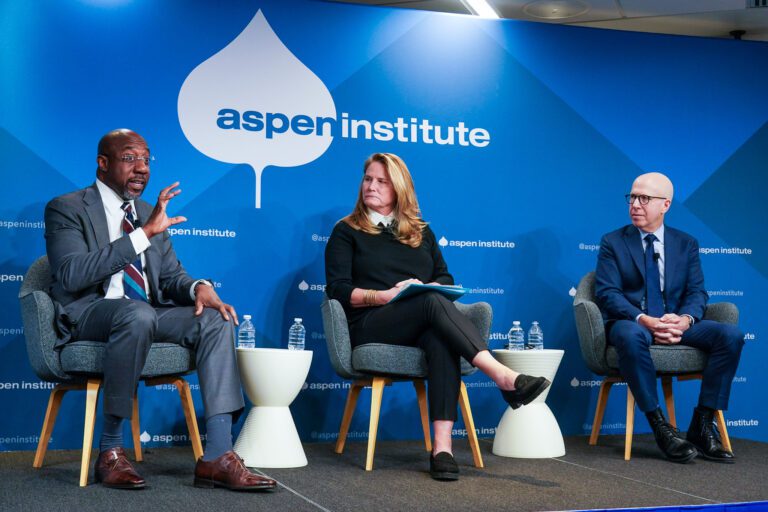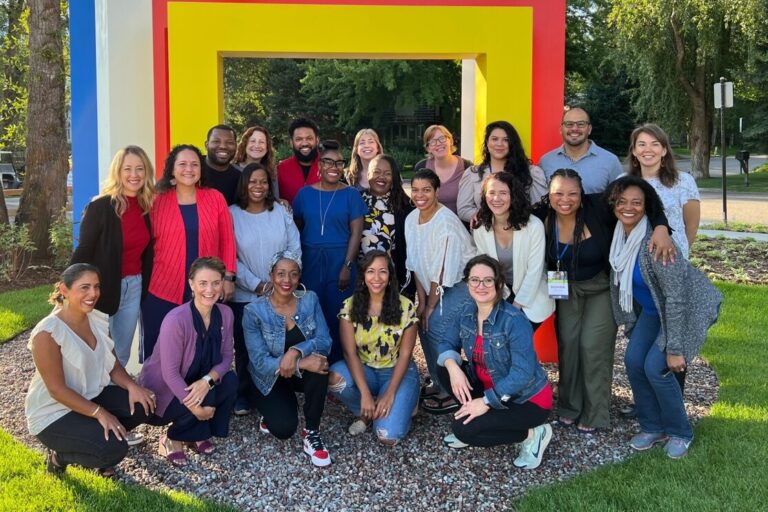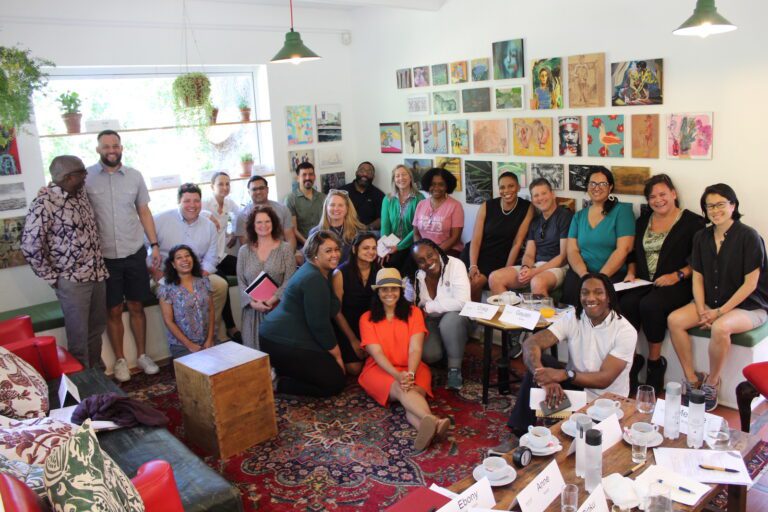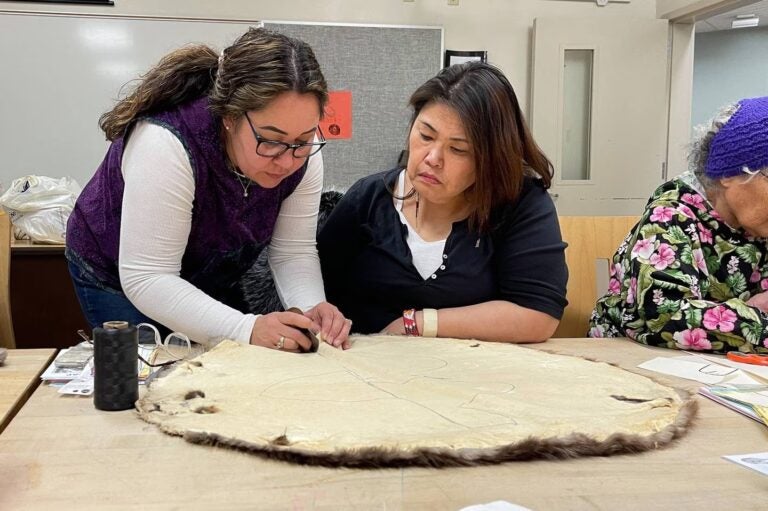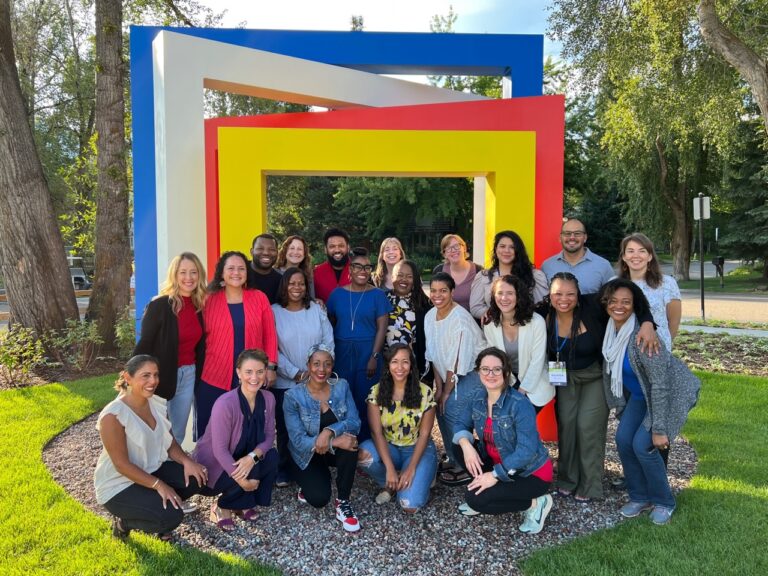Scaling Family-Centered Child Abuse Prevention
It’s a common story across the country. A parent living paycheck to paycheck, overloaded by stress, where just one setback can tip the balance. Without the supports that all families need – stable adequate housing, safe neighborhoods, affordable quality childcare, access to health and mental health care, economic security and the resources to meet basic needs like food and diapers – parents can become overwhelmed by financial pressures and chronic stress and find themselves slipping into poverty or deeper poverty. They may not know where to turn to for help. They may be ashamed to ask for help. They may turn to substances to escape the stress and to buffer their depression and sense of hopelessness, even despair.
Sadly, it is this precarious situation that too often causes a breakdown in care that brings child protective services into the picture. It is a story of a cascade of conditions that can lead to a child’s removal from their family – especially for babies and toddlers of color, who are disproportionately placed in foster care. And it is a story seen in national trends, where neglect is bringing the youngest children into the ‘system’ and parental substance use as a reason for removal has increased nearly two-fold over the past two decades.
What if it didn’t have to happen this way? What if someone were to step in, recognize that parents in the child welfare system are overburdened and how that is making it hard for them to provide nurturing care and support to their children? What if the courts were able to see the big picture of a parent’s story and needs and meaningfully address those needs, lifting the load that is weighing the family down?
That’s what happened in Pierce County in Washington state, when Barbara’s children were taken from her custody due to a mental health crisis. She was homeless, struggling, and afraid that she’d never see her babies again. But due to the holistic support of a team around her, she was able to receive treatment, participate in parenting interventions that strengthened her capacity to nurture her child, and reunite with her children in her new home.
April is National Child Abuse Prevention Month, which recognizes the importance of ensuring families have supports that mitigate child abuse and neglect. This year, we acknowledge that COVID-19 has, for many families, made an already difficult situation nearly impossible. Experts argue the pandemic, and the economic challenges that it poses to families, have resulted in a spike in child abuse and neglect. At ZERO TO THREE, one of the country’s leading early childhood development organizations dedicated to ensuring all babies and toddlers have a strong start in life, we’re working on ensuring the science of early childhood development is baked into the child welfare system and alleviating the stressors that contribute to neglect and abuse.
For more than 15 years, we have fostered two-generation systems-change innovation and cross-sector collaboration in the child welfare system through the Safe Babies Court Team™ (SBCT) approach to help parents like Barbara and their young children. This systems-change innovation creates a structure for cross-sector collaboration, to advance the health and well-being of very young children and their families. With nearly 70% of children served in SBCT sites removed for reasons related to parental substance use disorders, this collaborative and healing approach is essential for comprehensively meeting the needs of families to support recovery and resilience. The first three years of life are a period of incredible development and growth for young children. Emotionally nourishing relationships lay the foundation for lifelong health and well-being. The SBCT approach supports the adults who care for infants and toddlers, to ensure whole families are set up for success and maximize the long-term impacts of supporting the earliest years.
The SBCT approach brings together diverse stakeholders to address the varied needs of children and families in the child welfare system. Through proactive and collaborative problem-solving, capacity building, and systems integration at both the direct service and community levels, SBCTs aim to keep children with their families and promote reunification – because we know that consistent, nourishing relationships are crucial to early development. Recognized as a promising practice by the California Evidence-Based Clearinghouse for Child Welfare and most recently by the Association of Maternal & Child Health Programs (AMCHP) Innovation Station, research has demonstrated strong two-generation benefits of the approach for both children and their parents.
Today, ZERO TO THREE serves as a National Resource Center providing training and technical assistance support to leadership teams in 99 communities across 30 states who are exploring or implementing the SBCT approach. With funding from the Health Resources and Services Administration’s Maternal and Child Health Bureau, the Infant-Toddler Court Program at ZERO TO THREE is working with seven new state-level leadership teams to create the infrastructure for statewide SBCT implementation. A key programmatic area is strategic work done with local leadership teams to build the structure, procedures, and policies needed to reach more infants, toddlers, and families.
ZERO TO THREE is also cultivating a network of SBCT champions committed to transforming the child welfare system and who are positioned to lead the work forward. Champions include parent leaders and paraprofessional parent partners who serve on the program’s National Advisory Group for Parents’ Voices – a vital mechanism for engaging parents and ensuring the direct perspectives of families are continuously informing our work. These efforts are being carried out in partnership with the American Bar Association Center on Children and the Law, the Center for the Study of Social Policy, the National Council of Juvenile and Family Court Judges, and evaluators at RTI International.
As the presence of SBCTs continues to grow, and in recognition of National Child Abuse Prevention Month, it is especially important to highlight the prevention vision that drives this work – a vision that every baby and toddler in the child welfare system, as well as the adults in their lives, experience the social and environmental conditions that allow them to heal and to flourish. This vision is ambitious and bold, because it recognizes that SBCTs play a pivotal role in helping communities build supports that all families need to be strong, to be resilient, and to nurture healthy children. In other words, the vision posits that SBCTs can help prevent child welfare involvement in the first place.
From Intervention to Prevention Policy and Advocacy
ZERO TO THREE’s experience working in communities and states to support uptake of the SBCT approach has informed our strong advocacy for state policies and practices that address the time-sensitive developmental needs of the very youngest children involved with child welfare. We are particularly excited to be on the cusp of releasing a new prevention-focused policy framework for states that aims to drive best practices for babies and families in – or at risk of involvement with – child welfare. This forthcoming resource includes findings from a recent survey of state child welfare agencies, conducted by Child Trends in partnership with ZERO TO THREE, which found that state policies and practices continue to overlook the specific needs of infants and toddlers and that significant gaps exist in the provision of comprehensive supports to families to prevent children’s removal.
As the child welfare field keeps pushing to effect upstream prevention, and as child welfare systems across the country increasingly make the shifts to align with the Family First Prevention Services Act, ZERO TO THREE advocates for policies that better support infants, toddlers, and their families – policy recommendations that prioritize prevention, empower parents and elevate the parent voice, and promote racial equity and social justice.
For too long, parents like Barbara never received the support they needed, with devastating impacts on their families and their children and their own lives. Now, SBCTs are making a difference as they work in partnership with families to lift their heavy loads and help them provide the supportive relationships that children need to thrive.
Resources:
- To learn more about this work, please visit https://www.zerotothree.org/our-work/the-national-infant-toddler-court-program or contact Janie Huddleston, Director of ZERO TO THREE’s Infant-Toddler Court Program at jhuddleston@zerotothree.org.
- On March 31, 2021 – President Biden issued a proclamation describing the Administration’s commitment to prevent child abuse.
- Aligning Systems: Aspen Early Childhood Development and Health Forums, 2017–2020z; The brief provides an overview of lessons learned and new innovations to inform and support a comprehensive early childhood system and advance federal efforts to align early childhood and health systems in order to strengthen family outcomes across agencies.
Myra Jones-Taylor is an Aspen Institute Ascend Fellow, chief policy officer at ZERO TO THREE, and co-chair of Ascend’s Two-Generation Prenatal to Three Learning and Action Community.
Related Posts
